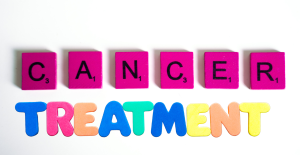Navigating health insurance coverage can be daunting, especially when facing a serious diagnosis like cancer. One of the most pressing concerns for patients and their families is understanding if their insurance provider, such as Blue Cross Blue Shield (BCBS), covers cancer treatment. In this comprehensive guide, we’ll explore how Does Blue Cross Blue Shield Cover Cancer Treatment? supports cancer patients, break down what their plans typically include, and provide actionable insights to help you make informed decisions about your care.
Understanding Blue Cross Blue Shield and Cancer Treatment Coverage
What Is Blue Cross Blue Shield?
Blue Cross Blue Shield (BCBS) is a federation of 34 independent health insurance companies across the United States, covering millions of individuals. BCBS operates under a variety of plan types, including Health Maintenance Organizations (HMOs), Preferred Provider Organizations (PPOs), and Exclusive Provider Organizations (EPOs). Each of these plans may have unique coverage benefits, so it’s crucial to understand the specifics of your policy.
Does BCBS Cover Cancer Treatment?
Yes, most Blue Cross Blue Shield plans cover cancer treatment. This includes a wide range of services such as:
- Diagnostic Tests: Coverage often includes biopsies, imaging scans (like CT or MRI), and genetic testing to determine cancer type.
- Cancer Therapies: Treatments like chemotherapy, radiation, immunotherapy, and targeted therapy are typically covered.
- Surgery: Many plans cover surgery to remove tumors or cancerous tissues.
- Hospital Stays: Coverage includes inpatient care and related services.
- Prescription Medications: Most BCBS plans include coverage for cancer-related medications, though specific drug tiers may affect costs.
- Supportive Care: Services such as palliative care, pain management, and mental health counseling may also be included.
However, coverage specifics depend on the plan, state, and provider network. Always review your individual policy or contact BCBS directly for detailed information.
Key Considerations for Cancer Treatment Coverag
Preauthorization Requirements
Some cancer treatments require prior authorization from (BCBS). This process ensures that the prescribed treatment is medically necessary. Failing to obtain preauthorization can result in denied claims, so coordinate with your healthcare provider and BCBS early in the process.
In-Network vs. Out-of-Network Providers
BCBS plans typically encourage the use of in-network providers to minimize out-of-pocket costs. While out-of-network providers may still be covered, the reimbursement rates are often lower, leaving patients responsible for a larger share of the bill. Verify your network options before scheduling treatments.
Deductibles, Copayments, and Coinsurance
- Deductibles: Patients must meet their annual deductible before BCBS begins covering expenses.
- Copayments: A fixed fee paid for services, such as doctor visits or medications.
- Coinsurance: A percentage of costs that patients must pay after meeting the deductible.
Understanding these costs can help you budget for cancer treatment.
Tips for Maximizing BCBS Cancer Coverage
- Understand Your Policy
Review your plan’s Summary of Benefits and Coverage (SBC) document to identify covered services, exclusions, and limitations. - Use Case Management Services
Many BCBS plans offer case managers to guide patients through treatment options, coordinate care, and navigate insurance claims. - Request a Benefits Verification Letter
Before starting treatment, ask BCBS for a detailed verification of your benefits. This ensures there are no surprises about coverage. - Appeal Denied Claims
If a claim is denied, don’t give up. Patients have the right to appeal decisions, and BCBS provides a formal appeals process. - Leverage State and Federal Programs
If your BCBS plan has limitations, explore supplementary resources like Medicaid, Medicare, or cancer support organizations for additional coverage.
FAQs About Blue Cross Blue Shield and Cancer Treatment
1. Does BCBS cover experimental treatments?
BCBS generally does not cover experimental or investigational treatments unless they are part of a clinical trial deemed medically necessary.
2. Are second opinions covered by BCBS?
Yes, most BCBS plans cover second opinions, especially for complex diagnoses like cancer.
3. Does BCBS cover fertility preservation for cancer patients?
Some BCBS plans include coverage for fertility preservation services, such as egg or sperm freezing, but this varies widely by policy.
4. Is genetic testing for cancer risk covered?
BCBS often covers genetic testing for inherited cancer risks, such as BRCA1 and BRCA2 gene mutations, if recommended by a physician.
5. Does BCBS offer financial assistance programs?
While BCBS does not directly provide financial assistance, they can connect patients to relevant resources and payment plans.
Practical Solutions for Managing Cancer Treatment Costs
Negotiate with Providers
Discuss payment plans or discounts with healthcare providers if you’re facing high out-of-pocket costs. Many hospitals and clinics have financial assistance programs.
Apply for Grants and Scholarships
Nonprofits like the American Cancer Society and CancerCare offer grants to help with treatment-related expenses.
Use Health Savings Accounts (HSAs)
If you have an HSA, you can use pre-tax dollars to pay for eligible cancer treatment expenses, reducing your overall financial burden.
Recent Trends in Cancer Treatment Coverage
Telemedicine for Cancer Care
Telemedicine is increasingly covered by BCBS, offering patients convenient access to oncologists and follow-up consultations.
Precision Medicine Advances
Many BCBS plans are beginning to recognize the value of precision medicine, which tailors treatments based on a patient’s genetic profile.
Expanding Coverage for Survivorship Care
As survivorship care becomes a crucial part of cancer treatment, BCBS plans are starting to include long-term follow-up care and wellness programs.
Conclusion
Blue Cross Blue Shield offers extensive coverage for cancer treatment, including diagnostic tests, therapies, and supportive services. However, navigating the specifics of your plan requires diligence. By understanding your policy, coordinating with healthcare providers, and exploring financial assistance options, you can reduce the stress of managing treatment costs.
Take Action Today
If you or a loved one is facing a cancer diagnosis, start by reviewing your Blue Cross Blue Shield policy. Reach out to BCBS representatives, ask questions, and take advantage of available resources. For more helpful information, explore other health insurance guides and patient support resources on our website.
By staying informed and proactive, you can ensure you or your loved one receives the best possible care without unnecessary financial strain.




